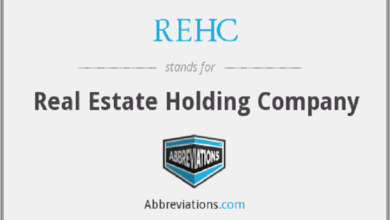
Everything You Need to Know About Renting an Apartment
Renting a property is a serious decision that can significantly affect your daily life and finances. Whether you’re a first-time renter or have rented before, it’s imperative that you understand the basics of apartment hunting and rental agreements. This comprehensive guide will cover everything you need to know about renting a property, from determining the best location to comprehending lease papers and ensuring a seamless move-in experience.
Budgeting and Financial Considerations
Setting a reasonable budget is essential before you begin your hunt. Determine the monthly rent payment amount that will allow you to save money for other requirements and savings. Experts suggest that renting should not exceed thirty percent of your monthly salary in order to maintain financial security. In addition to rent, keep in mind that you might also need to pay for utilities like power, water, and internet. Make sure to account for these costs in your budget. Recognizing your financial constraints will prevent you from going overboard and guarantee a hassle-free leasing process. A solid financial plan is the cornerstone of a happy rental experience.
Apartment Types and Amenities
There are many different kinds of flats, such as studios, one-bedroom, two-bedroom, and more. When selecting the ideal type for you, take your lifestyle and space requirements into account. While larger units may be appropriate for families, studios are perfect for singles or couples. Furthermore, the apartment complex’s amenities can significantly improve your quality of life. Fitness centers, swimming pools, laundry rooms, and security features are typical amenities. Prioritize residences that have the features you feel are most important for your way of life. A well-chosen property type and amenities will guarantee that your living area fulfills your individual requirements.
The Importance of Location
One of the most important things to think about when looking for excellent apartments for rent is the location. Your home’s location can affect your daily commute, your access to facilities, and your overall quality of life. Consider factors such as proximity to your workplace, public transportation, nearby schools, grocery stores, and recreational facilities while making your decision. Don’t forget to consider neighborhood security and safety. You may narrow down your search and select locations that best fit your preferences and lifestyle by taking a look at these variables. Remember that residing in the appropriate location may enhance your overall quality of life.
Apartment Search and Viewing
Use internet directories, neighborhood classified ads, or a real estate agent’s services to start looking for a new home. Make fewer selections depending on your spending limit, preferred location, and amenities. It’s important to plan viewings and make sure you arrive with pertinent questions. Inquire about the terms of the lease, the security deposit, the pet policy, and any maintenance or repair challenges. Observe the condition of the appliance, electrical, and plumbing systems in the unit. Making an informed decision and comparing several residences might be facilitated by taking thorough notes and pictures during the tour. A methodical search procedure guarantees that you won’t overlook important information.
Understanding Lease Agreements
After you’ve located the ideal dwelling, it’s important to carefully read over and comprehend the lease.The lease, which is a legally binding instrument, lays out the terms and circumstances of your relationship. Important information to take into account is the length of the lease, the monthly rent, the amount of the security deposit, and any additional expenses. Make sure you get all of your questions addressed and, if needed, seek legal advice before signing the lease. Never hesitate to get in touch with your landlord or property management if you have any questions or issues throughout your tenure. A signed copy of the agreement should be kept for your records as well. Effective rental relationships are built on the foundation of a clear and comprehensive lease agreement.
The Move-In Process
You will need to get ready for the move-in procedure after you sign the lease. This includes arranging for the relocation, getting renter’s insurance, and putting the utilities in your name. Before moving in, take some time to make a final inspection of the flat to note any damage or problems that may still remain. When you eventually move out, this paperwork can shield you from being blamed for issues that were there before. Establish open lines of contact with your property management or landlord as well in case you need maintenance or repairs done while you are renting out a space. An easy transition to your new house is guaranteed when you prepare for the process appropriately.
In conclusion, renting an apartment is a significant life decision that requires careful consideration and preparation. By following these recommendations, you can choose the perfect property that suits your preferences and needs, leading to a cozy and comfortable living space.




